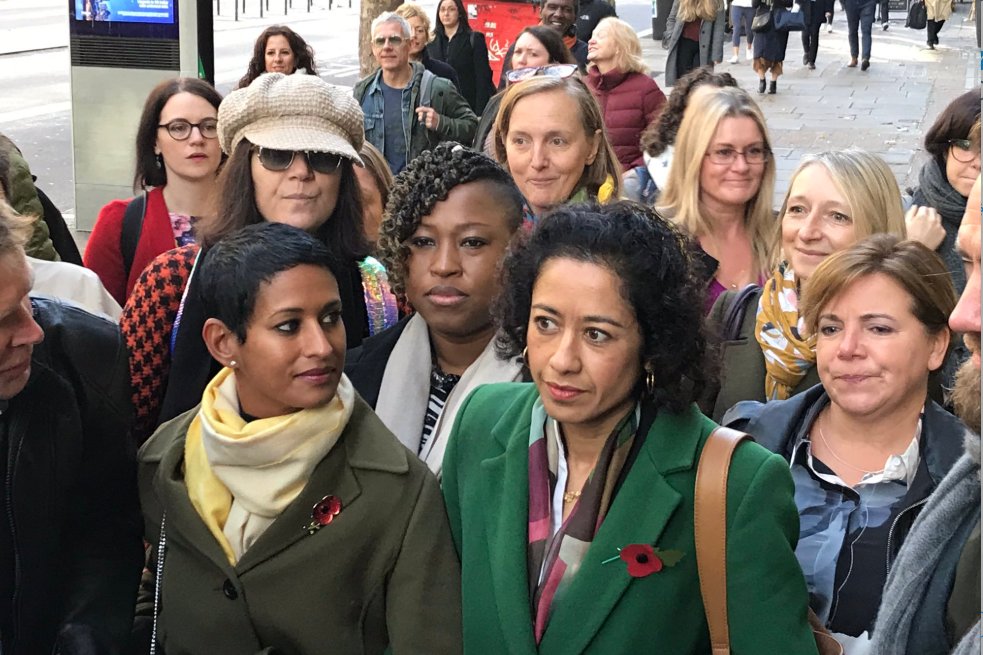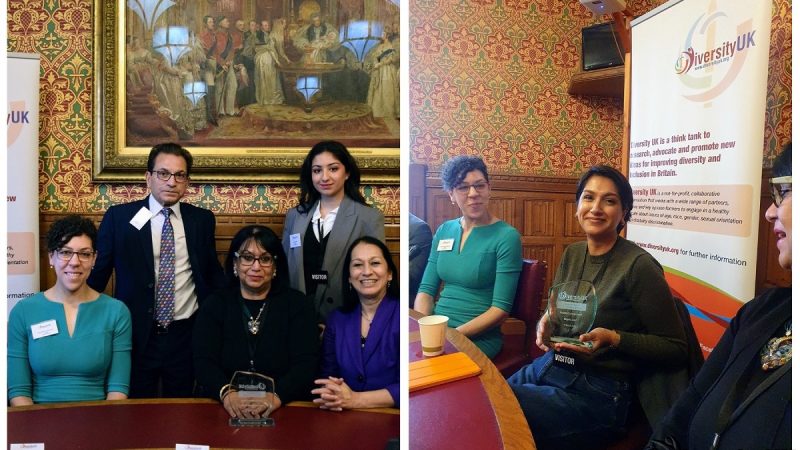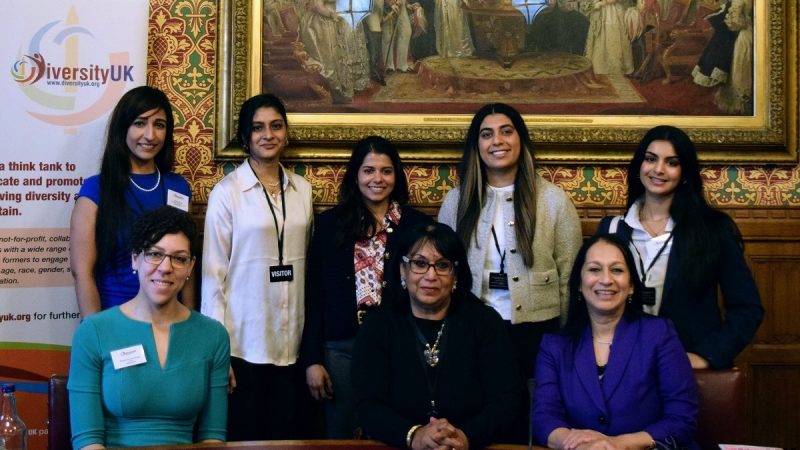BBC must rebuild trust with female employees on pay

An investigation by the Equality and Human Rights Commission (EHRC) into historical issues of equal pay at the BBC has found no unlawful acts of pay discrimination and has recommended improvements to increase transparency and rebuild trust with women at the organisation. In January 2020, BBC presenter Samira Ahmed has won her employment tribunal on equal pay against the BBC, in a case backed by the National Union of Journalists (NUJ). The case, which was heard at the Central London Employment Tribunal in December 2019, focused on Samira’s contracts on the BBC programme Newswatch, which she has presented since 2012.
The investigation started in March 2019 following publicly reported high profile cases of suspected pay discrimination and after extensive discussions with the BBC. It looked at suspected historical pay discrimination at the BBC and the systems and processes for setting pay and assessing complaints.
Evidence considered during the investigation came from women at the BBC about their experiences, and from the BBC on its processes for setting pay and resolving grievances. We also carried out detailed equal pay analyses on a sample of pay complaints.
The report has identified a number of areas where improvements can be made to rebuild trust with women at the organisation and increase transparency around decision-making and communications. The BBC accepts that its historical practices were not fit for purpose and has made significant changes since 2015.
The investigation has found inadequate record-keeping on how decisions about pay were made, leading to confusion and poor communication with women making complaints. During the course of the investigation the BBC had to conduct further searches for evidence as a number of documents were missing or incomplete in case files. This creates a risk of potential pay discrimination at the BBC with the organisation unable to justify how decisions were reached.
Evidence shows some women were unsure if their complaint resolution had considered equal pay correctly and they were left unsatisfied with the outcome, leading to a breakdown of trust in the complaints system.
Evidence points to a complaints system that took too long to resolve cases. Some women did not feel that the process was suitably independent, and felt that it had heightened their anxiety and stress. BBC employees must have trust in the independence of a complaints process and know cases will be resolved in a realistic timetable, with clear communication from beginning to end.
Equality and Human Rights Commission interim Chair, Caroline Waters, said:
“It is easy to see why trust between some women at the BBC and the organisation has broken down. Many women felt their voices were not being heard and have been left feeling confused as to how decisions about their pay have been made. This took a heavy emotional toll on those involved in the process and the strength of feeling of women at the BBC should not be understated.
“While we have not found any unlawful acts in our investigation, repairing the damage caused by these issues requires continued leadership and we hope the BBC Board takes forward our recommendations. The BBC accepts that change was needed and has made wide-ranging improvements. Our recommendations will help it go much further to rebuild trust and increase transparency so the BBC does not leave itself open to the risk of pay discrimination in the future.
“It is sad that we are still having to debate equal pay for equal work. Equal pay is the law and has been for 50 years. Every employer should read this report and ask if they are doing all they can to reduce the risk of pay discrimination. If in doubt, take action now.”
EHRC Report recommendations
The report has also highlighted the substantial overlap in pay bands, identified as an issue in previous reports and reviews. This creates a possibility of those in a higher grade being paid less than someone a grade below, potentially leading to a risk of pay discrimination.
The recommendations, which the BBC Board should lead on, include:
- making sure that consideration of equal pay is fully recorded and explained to the complainant at every stage of the grievance process
- clearly setting out and adhering to reasonable time limits when determining pay complaints
- measuring staff confidence in its arrangements for the independent scrutiny of complaints and, if necessary, improving staff confidence through further staff engagement
- continuing to improve transparency when communicating with employees by giving reasons for the decisions made about their pay and recording them consistently so it is clear why and when an employee’s pay has been decided
- continuing to improve training and guidance for all staff at the BBC who make decisions about people’s pay
- reviewing pay frameworks regularly, to ensure their continued integrity and to reduce the risk of discrimination
- considering how it can best assess whether comparators are doing work of equal value when considering pay complaints
- conducting equal pay audits, which comply with our guidance, at least every five years
- in consultation with the Joint Unions, considering measures to address those employees who are paid more than the maximum of their job pay range
Responding to the EHRC report BBC Chairman David Clementi says: “We note the findings of the EHRC and are pleased that they recognise the Board’s commitment to ongoing reform. Equal pay is a vital issue and the Board will continue to oversee the BBC’s work to be a leader in this area.”
BBC Director-General, Tim Davie, says: “We welcome this report from the EHRC. We note that the Commission has made no unlawful findings against the BBC and recognises that there have been significant improvements to BBC pay practices in recent years.
“However, we have to work even harder to be best in class. Trust is vitally important and as an organisation that serves the public, the BBC must continue to lead the way on pay transparency and fairness. We are committed to building a truly inclusive culture.
“We agree with the Commission that we should continue to deliver on our reform programme which began in 2015. We accept every one of their recommendations and will implement them.”
In the report the EHRC recognises there have been significant improvements to BBC pay practices in recent years, saying: “The BBC has made a series of wide-reaching reforms which have significantly improved the coherence, consistency and transparency of its pay systems. The reforms have reduced the risk of pay discrimination considerably.”
The BBC acknowledges we haven’t always got it right on pay in the past and we have worked hard to change this. The BBC always strives to lead the way on pay transparency and fairness, so we welcome the opportunity to further improve and are setting out more plans today.
Examples of our reforms since 2015
- There are now far fewer job titles allowing people to easily compare themselves to their peers.
- We have increased transparency. Staff can go online and see how their pay compares to others - men and women.
- We use sophisticated pay tools that allow us to compare salaries across similar roles, to reduce the risk of unequal pay when it is being set.
- We regularly check every person’s pay against their peers and adjustments are made if needed.
- We have new training for managers to ensure they are continuing to take equal pay and fair pay into consideration when setting salaries, which are now overseen centrally.
- We conduct regular employee surveys to monitor if our pay practices are seen as fair and transparent.
- We made a commitment to complete cases within 90 days and those open are under 90 days old. Now 99% of original pay queries have been closed.
Find out more about the EHRC investigation or read the full report.
Click here to read the BBC response to the EHRC investigation & report.




